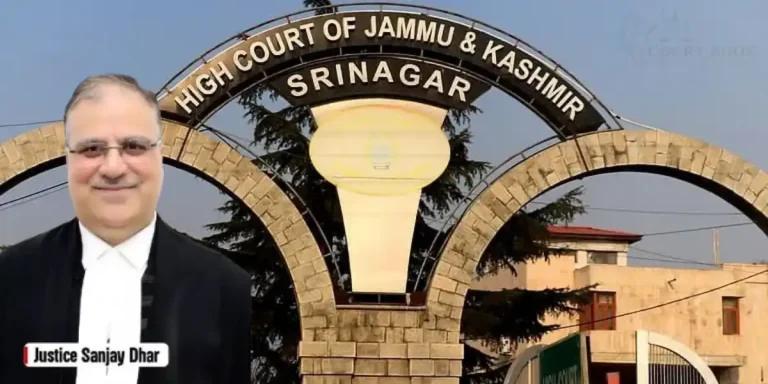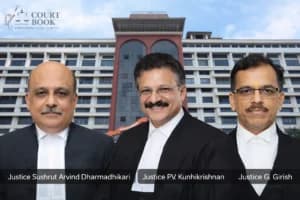The Jammu and Kashmir and Ladakh High Court has held that an employee has no vested right to be considered for promotion under repealed rules. The court stated that the rules in force at the time of consideration — not when the vacancy arose — would apply.
“The employee does not acquire any vested right to being considered for promotion in accordance with the repealed rules in view of the policy decision taken by the Government,”
— Justice Sanjay Dhar, J&K High Court
This observation came while dismissing a petition by Sanjeev Gupta, who worked as a Private Secretary at the Central University of Jammu and sought promotion under the older Cadre Recruitment Rules of 2016 (CRR 2016).
Read Also:- Police Must Stay Away from Land Disputes Disguised as Amicable Settlements: Andhra Pradesh High Court
Background of the Case
Sanjeev Gupta was appointed as a Private Secretary in June 2014. In July 2019, the university issued a notification inviting eligible internal candidates for promotional posts like Assistant Registrar. The promotion was to be conducted under CRR 2016, which required five years of service and tests based on written exams, service records, and seniority.
Gupta completed the necessary service and appeared for the written test in 2019. However, the skill tests for Group A posts, including Assistant Registrar, were not held. Despite repeated requests, the promotion process remained incomplete.
In December 2019, the university's Executive Council decided that departmental promotions would be based on inter se seniority. But no final promotion list was published.
Later in August 2023, the university issued a fresh notification based on revised CRR 2022, changing the promotion criteria to merit-based written tests. This was again updated by a new notification in December 2024.
Gupta challenged both notifications, arguing that since the vacancy arose in 2019, the promotion should be under the 2016 rules. He claimed the university’s failure to conclude the earlier process was unjust.
Justice Dhar stated that merely taking part in a promotion process does not give any legal right unless the process is finalized. The 2019 promotion process had not led to any selection or appointment.
“A candidate has the right to be considered for promotion under the rules in force at the time of consideration, and if those rules are amended before finalization, no accrued or vested right is taken away,”
— J&K High Court citing Supreme Court rulings
The Court explained that the university had valid reasons for not completing the 2019 process — including the COVID-19 pandemic, expiration of the Vice-Chancellor’s term, and lack of delegation of promotion powers.
Once the University Grants Commission issued new model rules, the university adopted them. Thus, promotions had to follow CRR 2022.
Rejection of Old Legal Arguments:
The court dismissed the petitioner’s reliance on the earlier Supreme Court judgment in Y.V. Rangaiah v. J. Sreenivasa Rao, which had held that promotions should follow rules in effect when the vacancy occurred. Justice Dhar cited a more recent 2023 Constitution Bench judgment in Raj Kumar, which overruled the broad application of the Rangaiah principle.
Read Also:- Supreme Court to Decide If Third Party Can Invoke Order XXI Rule 97 CPC Amid Conflicting Rulings
“The employee does not acquire any vested right to being considered for promotion in accordance with the repealed rules in view of the policy decision taken by the Government,”
— Justice Sanjay Dhar quoting Raj Kumar (2023)
The court also rejected the use of the 1986 DoPT Office Memorandum by the petitioner, saying it had no statutory force and was outdated based on current legal interpretations.
The High Court concluded that the CRR 2022 rules would apply and found no illegality or unfairness in the university’s decision. Accordingly, the court dismissed the petitions as baseless.
Case Title: Sanjeev Gupta Vs Central University of Jammu















